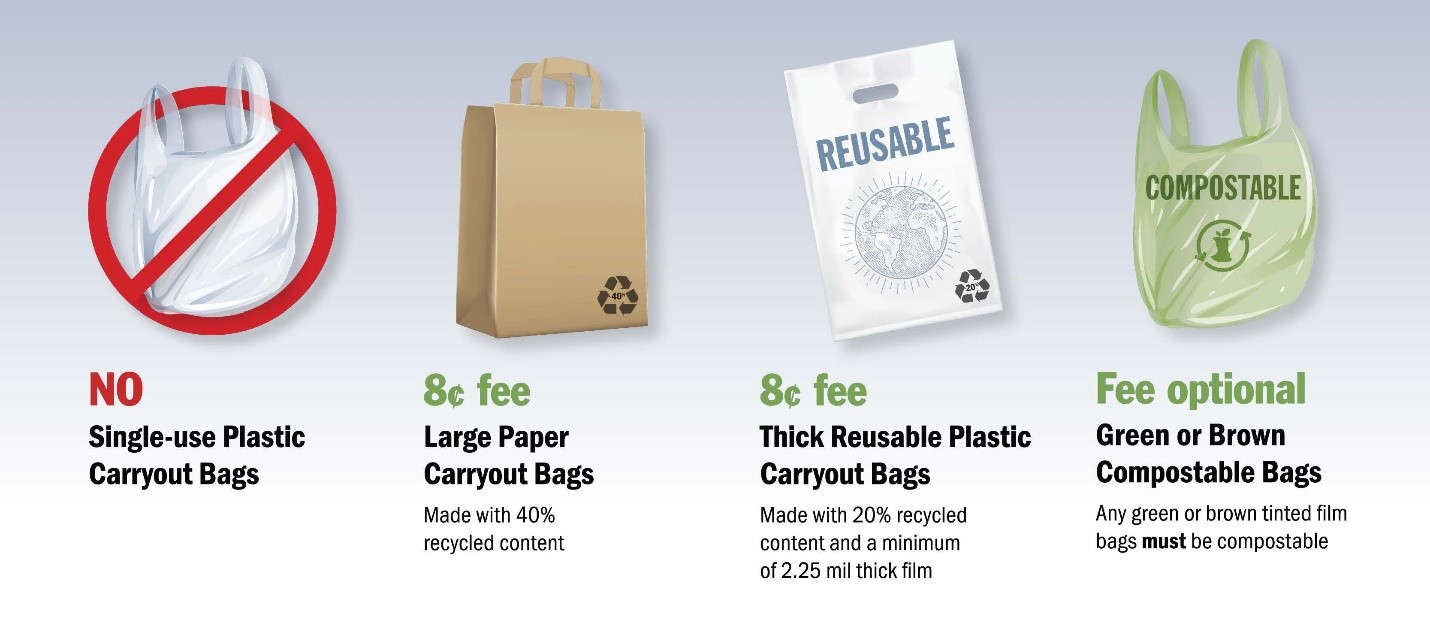Published on:
Starting October 1, restaurants, retailers, small vendors, and grocers are prohibited from distributing single-use plastic carryout bags and are required to charge a fee for certain bags.
“Single-use plastic bags are not easily recyclable, which makes managing them at the end of their lives almost impossible,” said Laurie Davies, manager of the Solid Waste Management Program at the state’s Department of Ecology (DOE). “Reducing their use will protect our rivers and streams and help our recycling system run more efficiently.”

Ecology encourages consumers to invest in reusable bags for groceries and carryout food from restaurants. Like any reusable item, DOE reminds people to wash and properly store these bags after each use.
If customers choose to use compliant plastic or paper bags offered by a merchant, the law requires the business charge 8 cents per bag. That 8-cent fee is not a tax; it is a sale kept entirely by the merchant to provide an incentive for customers to bring their own bags and to recoup the costs for the more durable compliant bags.
Some single-use plastic bags are exempt from the law. Among these are plastics to wrap meats and produce, bags for prescriptions, and newspaper and dry cleaning bags.
The 8-cent charge does not apply to food banks and pantries, individuals receiving food stamps, WIC, SNAP, or other government assistance forms.
The plastic bag ban was scheduled to begin Jan. 1, 2021, but due to the limited availability of compliant bags Gov. Jay Inslee delayed it through a proclamation.
Proponents of the plastic bag ban believe Washingtonians will begin to see fewer plastic bags littering the state’s roadsides, parks, and streams. Such bags are a common form of pollution that threatens human health, wildlife, and the environment. They are also a major contaminant in Washington’s recycling system that clog sorting machines.
Plastic bags also put worker safety at risk because harmful chemicals are released when plastics are produced, used, incinerated, or slowly disintegrate into microscopic particles.
As part of its focus and education and communication to promote understanding of the new law and ease the transition to reusable bags, the Department of Ecology and partners developed an outreach toolkit with customizable information, signage and graphics that business can brand. The downloadable materials and resources are available in 17 languages.
A complete listing of requirements of the statewide ban on single use plastic bags, along with details on the tools and resources, may be viewed by visiting Ecology’s website.